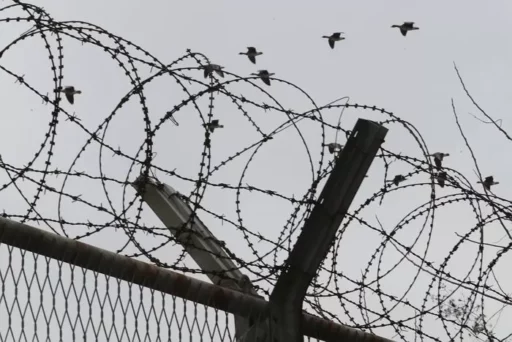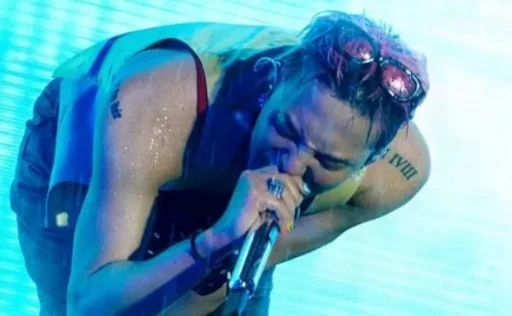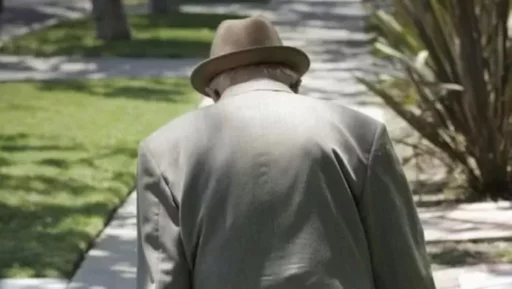Presidential approval rating for Lee Jae-myung at 59.3%… "Reflecting diplomatic leadership following G7"
The positive assessment of President Lee Jae-myung's performance is nearing 60%. The expectation for his diplomatic leadership, which has intensified since his debut in diplomatic affairs following the G7 summit, is interpreted as contributing to his approval rating.
According to a survey conducted by Realmeter on 2,514 individuals aged 18 and older nationwide from June 16 to 20, commissioned by Energy Economics Newspaper, the positive evaluation of President Lee's governance was recorded at 59.3%. This is an increase of 0.7 percentage points from last week's first evaluation.
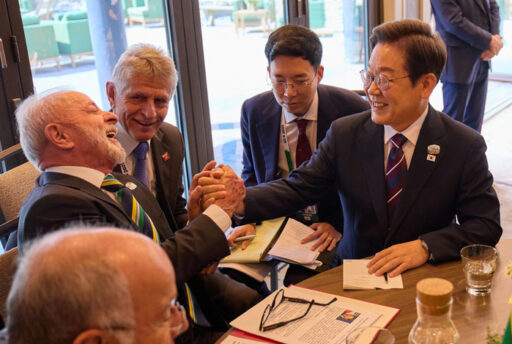
On the other hand, the negative assessment was at 34.2%, resulting in a gap of 24.4 percentage points between positive and negative evaluations, which lies outside the margin of error (±3.1 percentage points). The 'don't know' responses accounted for 7.2%.
Among the positive responses, 49.2% rated him as 'doing very well', up from 46.6% the previous week, while 'doing fairly well' accounted for 10.1%. In the negative evaluations, 24.8% chose 'doing very poorly', and 8.7% chose 'doing poorly'.
By region, support for President Lee was evenly distributed across the nation, exceeding his traditional base in Honam (Gwangju and Jeolla, 78.9%) to also include Daejeon, Sejong, and Chungcheong (53.9%), Seoul (54.8%), Busan, Ulsan, and Gyeongnam (55.7%), and Daegu and Gyeongbuk (49.2%).
Positive outlook for governance… "Will do well in the next five years" at 60.4%
When asked about the outlook for governance over the next five years, 60.4% responded that he would 'do well', which is an increase of 1.0 percentage point from the previous week. Conversely, 34.3% responded that he 'would not do well', a decrease of 0.6 percentage points.
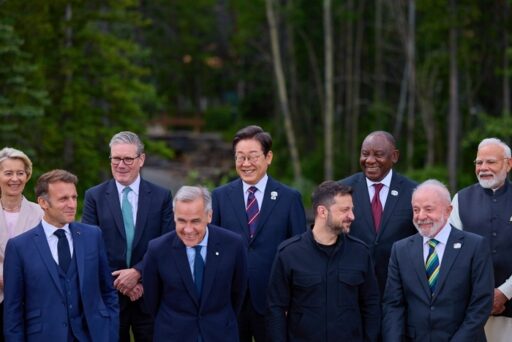
Some political analysts noted that "the diplomatic activities shown at the G7 summit appear to have driven expectations for strong governance leadership." Indeed, President Lee has been evaluated as having set the stage for elevating the country's stature by articulating positions on global issues such as international supply chains and climate crisis responses during his debut in multilateral diplomacy.
Party support: Democratic Party 48.4% vs. People Power Party 31.4%
In terms of party support, the Democratic Party maintained the lead with 48.4%, though this was a drop of 1.5 percentage points from the previous week. The People Power Party registered at 31.4%, an increase of 1.0 percentage point compared to the previous week. The gap between the two parties stands at approximately 17 percentage points.
Other parties included the Reform Party at 4.9%, the Justice Party at 2.9%, the Progressive Party at 1.6%, and other parties at 2.4%. The percentage of those with no party affiliation was 8.5%.
This survey was conducted using 100% mobile methods, with a response rate of 6.2%, and a margin of error of ±3.1 percentage points at a 95% confidence level. More detailed results can be found on the Central Election Survey Deliberation Commission's website.
Image source: News1
